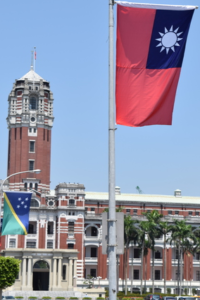
Sato Hirosuke, General Manager of the Registration Office, Tokyo National Museum The 150th Anniversary Special Exhibition “Tokyo National Museum: Its History and National Treasures” held at the Tokyo National Museum (TNM) from October 18 to December 18, 2022, put 89 national treasures from the museum’s collection on display (objects on display change during the exhibition period). Nineteen national treasure swords were displayed throughout the entire exhibition period, the first time that they had been shown together. I myself had never seen all of them side by side, so this was a rare opportunity. As of 2022, there are 122 swords throughout Japan designated as national treasures. It was possible to see almost 20% of them in this exhibition. Among the swords were those counted among the “Tenka-Goken” (the greatest five swords of Japan), namely the Blade for a Long Sword (Tachi), Named “Meibutsu ... ... [Read more]

